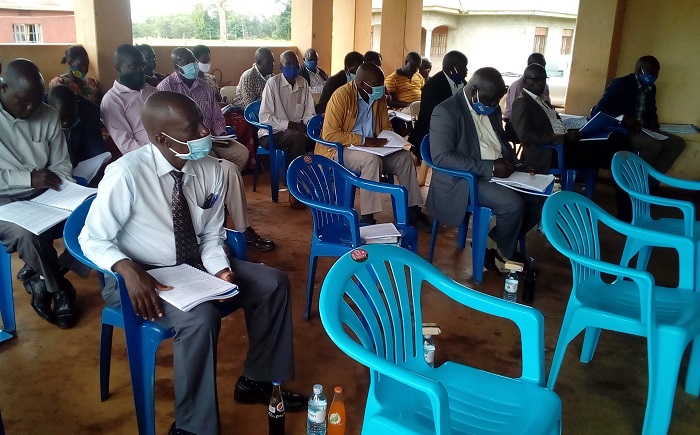APAC – Savings and Credit Cooperative Societies [SACCOs] in Kwania and Apac districts have gained momentum, and attracted a number of civil servants such as teachers, leaving the large microfinance institutions drained of customers.
In addition, the SACCOs in the two districts are about to implement an inter-SACCO lending market, a development that has left local the large microfinance institutions in fear of closing business, should the initiative succeed.
Akin to inter-bank lending, the inter-SACCO lending in the two districts of Apac and Kwania can enable SACCOs to lend and borrow money from each other at a fair interest rate thereby sidestepping the microfinance institutions whose loans are considered expensive. 11-SACCOs in the two districts will run participate in the inter-SACCO lending market have forwarded their plan to the Ministry of Trade, Industry and Cooperatives for legal advice.
Robert Odur, the chairperson board of directors of Ikwera SACCO in Kwania district says the latest development is bound to put an end to commercial relationships involving the civil servants and microfinance institutions operating in Lango Sub-region.
According to Odur, a number of civil servants are now shying away from microfinance lending institutions largely due to the expensive loans and stringent conditions attached to borrowing.
“We want to create a forum through which the SACCOs can interact. For example, if SACCO ‘A’ has a cash flow problem it should be able to access funding from SACCO ‘B’. It just allows SACCOs to team up and develop their capacity to serve their members. The current situation is that if your SACCO runs short of money the only place you can go is to nearby SACCO,” Odur said in an interview on Friday.
Bazil Odongo, a livestock trader and a resident of Ololango Village in Chegere Sub-county, Apac district says he borrowed Shs 25 million in October last year at an interest rate of 8 percent from Acanpekun Credit and Cooperative Society, a local SACCO in the district. Odongo said he is able to service his loan well and is making a lot of profit unlike with microfinance institutions.
“Shs 25m that I used to borrow from a microfinance at an interest rate of 10 percent and could earn me a profit of Shs 5 million, but when borrow the same amount from the SACCO, I started realising a profit of shs10mln,” he said, adding that this has helped him to expand his livestock business.
William Odoc, a teacher of Acungi Primary School in Kwanai district said many teachers have high hopes in getting loans from SACCOs after suffering with microfinance institutions.
He claimed that the microfinance lending institutions continue to make unnecessary deductions of teacher’s salaries even when the loan payment is done.
“It is better to acquire loans from the SACCOs, it’s easy to access and repay unlike the microfinance institutions that are fond of making unnecessary salary deductions,” he noted.
But Patrick Okullo, the Manager Platinum Apac Branch rubbished the claimed of unnecessary deductions from the teachers’ salaries. Okullo however admitted that they have realised a decline in the numbers of their customers as some have joined SACCOs.
“In the financial year 2018/2020 our loan portfolio was at a tune of Shs 300 million while in the financial year 2019/2020 we realised a drop up to Shs 180mln this is partly attributed to Covid-19 pandemic that show a number of businesses shut down, although to some extent we think the coming up of SACCOs is equally doing us more harm,” he said.
Apac District Local Government currently has a total of six fully registered SACCOS, with 1,512 Village Saving Lending Associations, [VSLA] and three microfinance institutions that include Platinum, Bayport, and others operating in the two districts of Apac and Kwania, with over 15,000 clients.
https://thecooperator.news/apac-pdm-sacco-leaders-arrested-over-missing-funds/
Buy your copy of thecooperator magazine from one of our country-wide vending points or an e-copy on emag.thecooperator.news
